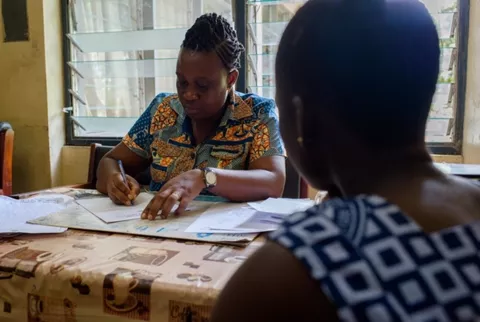Gender-Based Violence training manual for law enforcement
Building the capacity of the Judicial Service in addressing sexual and gender-based violence.

Highlights
The Judicial Service plays a critical role in responding to and creating access to justice for women and girls who have suffered sexual and gender-based violence. The rising number of victims of sexual and gender-based violence in Ghana requires a systematic approach to addressing these cases. To effectively enforce laws that protect women and girls from sexual and gender-based violence, including the recurrence of violence and hold perpetrators to account while providing effective reparations for victims, four different modules of training manuals on gender-based violence were developed and used in training Judges, Registrars and Court staff on gender-based violence.
The manuals were developed as part of broader plan to strengthen the capacity of the Judicial Service in addressing sexual and gender-based violence and following the establishment of Child-Friendly Gender-Based Violence Courts to increase access to justice for women and children in line with international standards. Thus, the training manuals are meant to be a practical tool for the Judiciary by enhancing knowledge, skills and institutional capacity in handling cases of sexual and gender-based violence in Ghana, prevent secondary victimization of victims and serve as a benchmark for the protection of women and girls who come into contact with the justice system. The development of the manuals was funded by the Danish Embassy in Ghana through the DANIDA Fellowship Center and with technical support from UNICEF Ghana. The nationwide training of staff of judicial service based on this manual is being supported by UNICEF Ghana.
Module 1- Focuses on Gender and Gender Sensitivity. While adults and children of both sexes can be and are victims of sexual and gender-based violence, this module is focused on the gendered nature of this violence, understanding that most victims of sexual violence are female, and the majority of perpetrators are male. This module highlights the specific considerations for women and girls that are linked to their sex.
Module 2 – covers the Social Context within which gender-based violence occurs. It presents a broad overview of the causes, types, prevalence rates and impact of GBV at a global level and in Ghana, with particular attention to violence perpetrated against women and girls, the current realities faced by victims in seeking protection and accountability for the crimes committed as well as the relevant international and national legal instruments that can assist increasing justice for women and girls.
Module 3- covers the role of the Gender-Based Violence courts in addressing issues of sexual and gender-based violence and increasing access to justice for victims. The module covers the minimum services available at the courts in reducing harm and revictimization.
Module 4- Focuses on intermediary skills training mainly for court staff. It introduces the concepts of gender, the use of the operational guidelines and further exposes the trainees to the different needs of children and adults while providing the different ways for handling women and children in line with international and national standards.





